Unity Seder Calls for Solidarity with Ukraine
Representatives of a variety of religious and ethnic communities attended the AJC event.
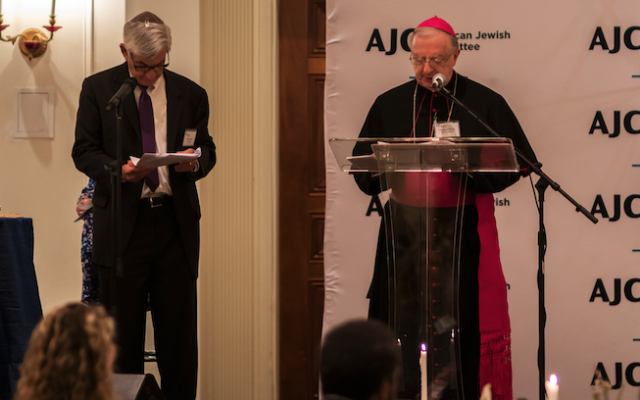
After two years as a virtual event, the American Jewish Committee’s Unity Seder returned to The Temple’s spacious Schwartz-Goldstein Hall on March 31. True to its name, the event attracted a broad cross-section of representatives from Atlanta’s numerous religious and ethnic communities.
Nearly 30 spiritual and political leaders, from Bishop Joel Konzen of the Catholic Archdiocese of Atlanta to Mayor Rusty Paul of Sandy Springs, took part in the program, which focused on the contemporary struggle for freedom in Ukraine. Each participant in the event, just before speaking, carried a sunflower — the country’s national symbol — which was placed in a large vase at one side of the stage.
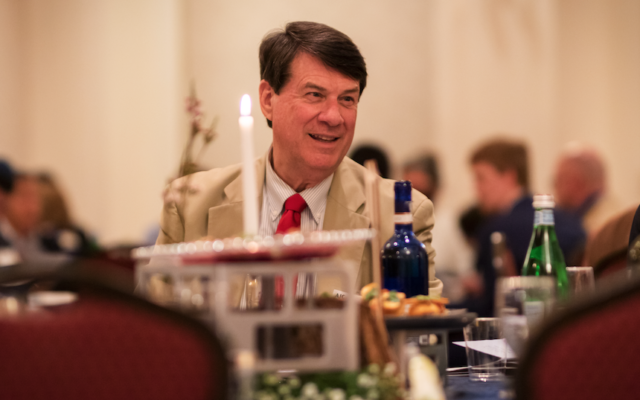
Rabbi Loren Lapidus of The Temple, who with Rabbi Scott Colbert conducted the seder, described the event as an opportunity to strengthen ties within the community at a challenging time.
“We hold the pain of all of our fellow human beings around the world in our hearts. We’re also mindful that an interfaith gathering focuses some of these events, particularly close to home for us. There is so much in this world that tries to pull us into fear and anxiety. May we draw strength from one another,” she said.
Instead of the Passover tradition of the youngest child asking the four questions, three members of Atlanta’s international consular corps, including Israel’s Consul General Anat Sultan-Dadon, participated in that part of the seder.
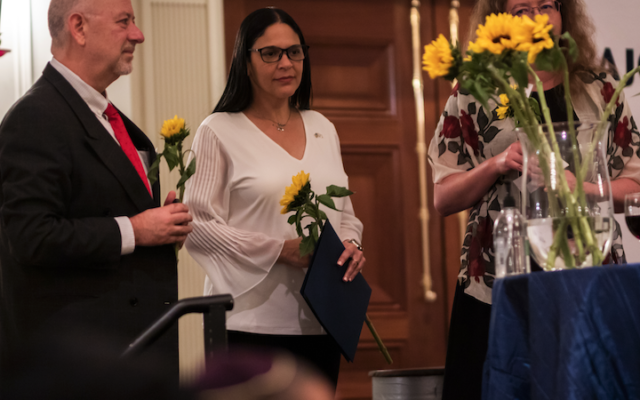
The role of telling the story of Passover fell to five members of the non-Jewish community, including Hispanic, Indian, Asian and African American attendees.
Soumaya Khalifa, executive director of Atlanta’s Islamic Speakers Bureau, and Kuldip Singh, a Sikh community leader, explained the significance of Elijah’s Cup.
Peter Bennion, the Atlanta stake president of The Church of Jesus Christ of Latter-day Saints, read aloud the Haggadah text that spoke most directly to the importance of freedom:
“We are slaves because today there are still people in chains around the world and no one can be truly free while others are in chains; we are slaves because freedom means more than broken chains; where there is poverty and hunger and homelessness, there is no freedom; when there is prejudice and bigotry and discrimination, there is no freedom; where there is violence and torture and war with no freedom, and where each of us is less than he or she might be, we are not free, not yet.”
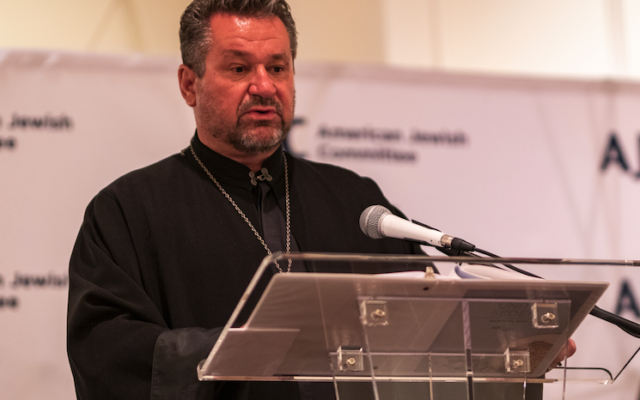
The text was taken largely from the “Interfaith Haggadah” edited by Rabbi Robert Reiner, a board member of the AJC in Cincinnati, Ohio.
In keeping with the emphasis on the Russian invasion of Ukraine, the climactic part of the seder, the call to action, was reserved for Julie Katz, the associate director of the AJC’s Atlanta chapter. She asked those attending to use their smart phones to access a QR (quick response) code on the back of the program that linked to a form letter calling on members of Congress, as she put it, “to take concrete steps to counter Russia’s unprovoked war against Ukraine.”
“Tonight we stand in solidarity with the people of Ukraine,” Katz continued. “As Moses was commanded to lead the Jewish people away from their suffering and out of Egypt, we are commanded to alleviate the suffering of others.”
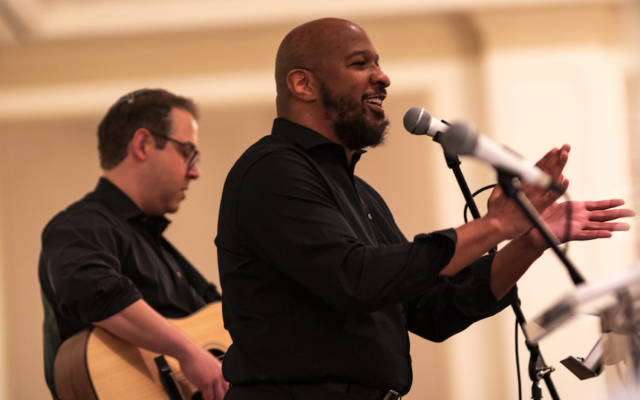
The seder concluded with Rev. Bogdan Maruszak of St. Andrew Ukrainian Orthodox Church in Cumming, Ga., calling upon hope for a better world.
“For the Jewish people, the hope of freedom has been symbolized by the prayer, ‘Next year in the land of Israel.’ But even if we were right now in Jerusalem, we would still say, ‘Next year in the land of Israel,’ for this year, the freedom of all humankind remains diminished because tyranny still reigns and hatred still divides. Some day we hope all will celebrate in a world made one and a world made free.”
- Passover
- Local
- Bob Bahr
- Pesach
- Seder
- The Temple Atlanta
- American Jewish Committee
- Unity Seder
- Schwartz-Goldstein Hall
- Bishop Joel Konzen
- Catholic Archdiocese of Atlanta
- Mayor Rusty Paul
- Sandy Springs
- Ukraine
- Zelenskyy
- Putin
- russia
- sunflower
- Rabbi Loren Lapidus
- Rabbi Scott Colbert
- Israel’s Consul General Anat Sultan-Dadon
- Soumaya Khalifa
- Islamic Speakers Bureau
- Kuldip Singh
- Sikh
- Elijah's Cup
- Interfaith Haggadah
- Rabbi Robert Reiner
- Julie Katz
- Rev. Bogdan Maruszak
- St. Andrew Ukrainian Orthodox Church



comments